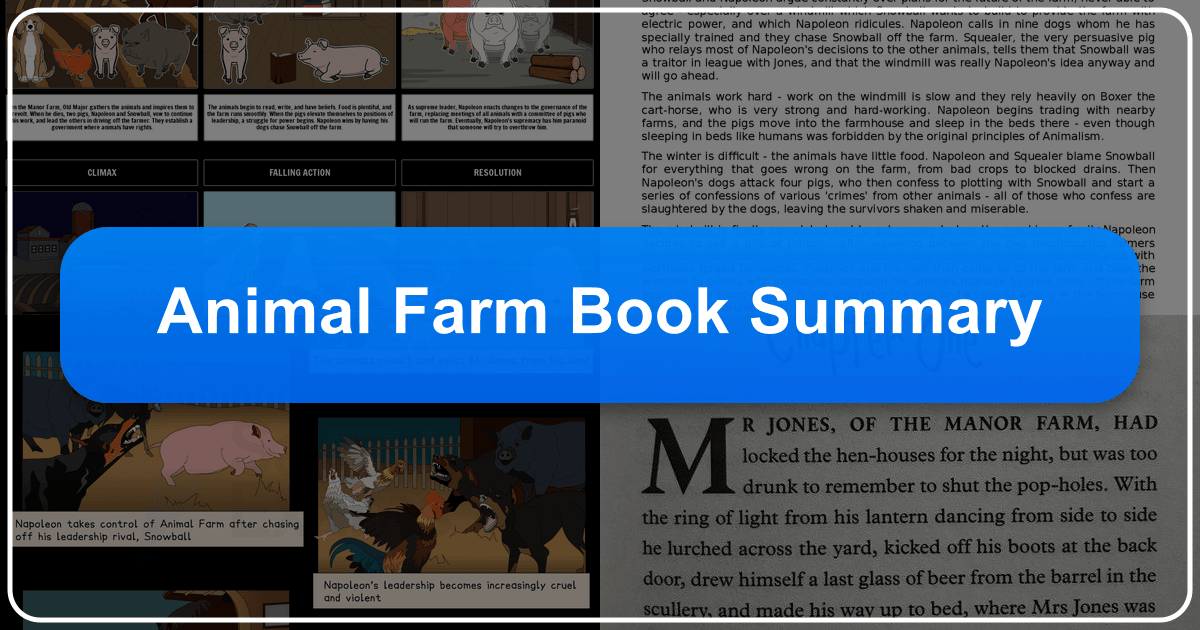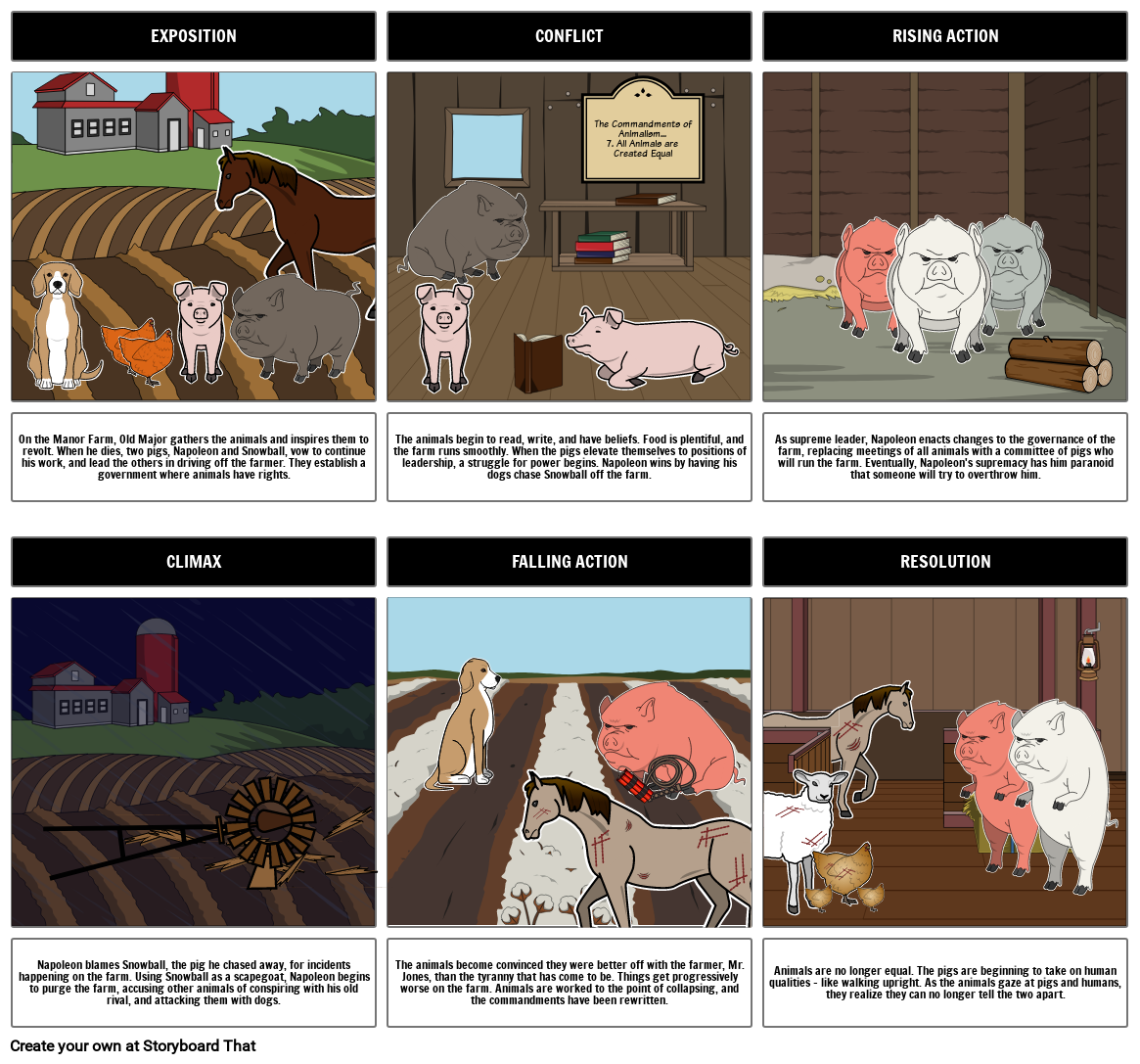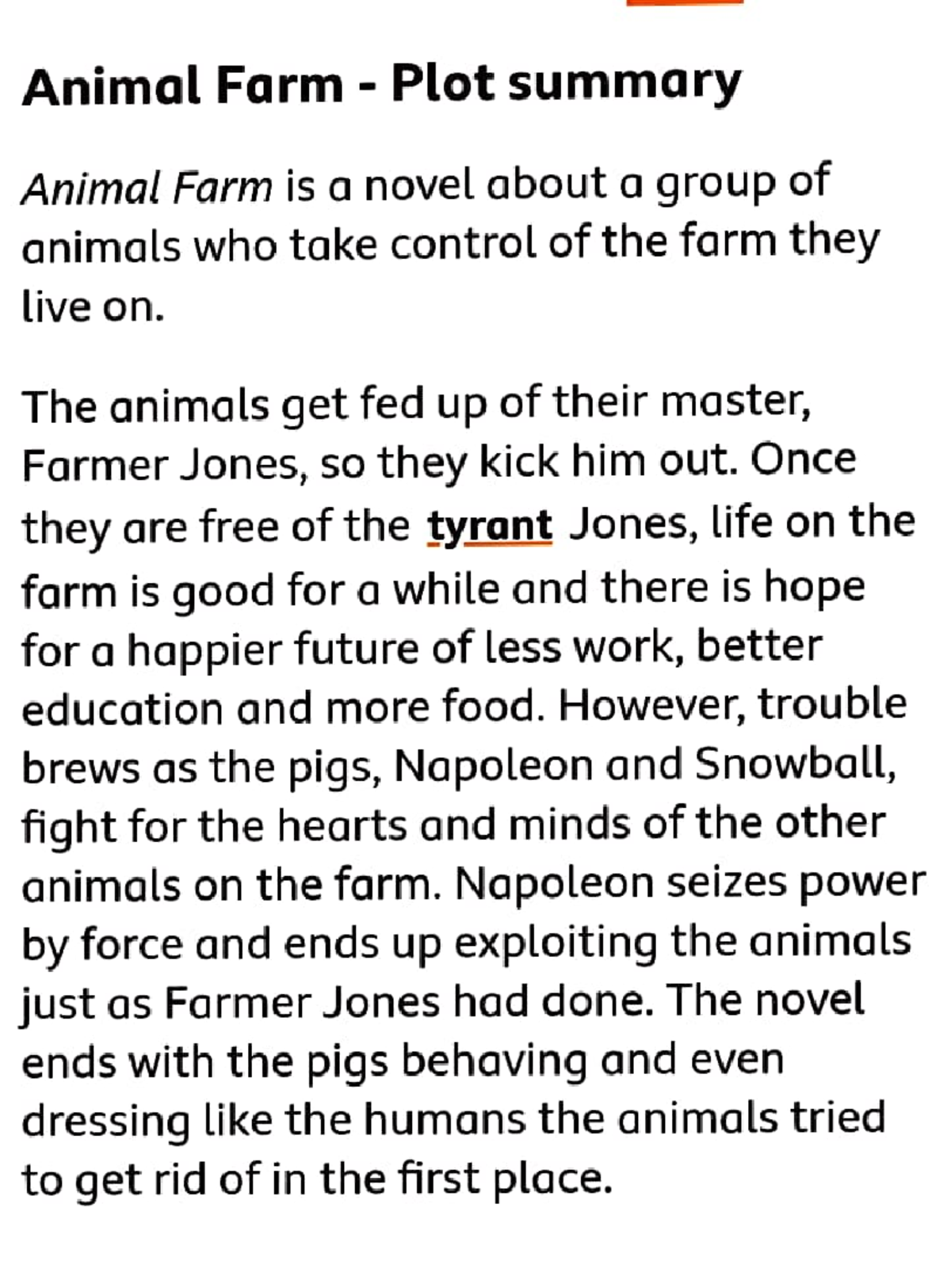Animal Farm: A Deep Dive into Orwell's Allegory of Revolution and Power

George Orwell’s Animal Farm, a satirical novella published in 1945, remains a chillingly relevant exploration of political power, revolution, and the corrupting influence of ideology. This in-depth analysis, drawing upon information from Lbibinders.org, will delve into the book’s summary, themes, characters, and lasting cultural impact, examining its place within the broader context of literature, history, and social commentary. We will explore the narrative from various perspectives, considering its literary merit, educational value, and enduring relevance in understanding contemporary political landscapes.
A Summary of the Rebellion and its Degeneration
Animal Farm tells the story of Manor Farm, a neglected estate run by the tyrannical farmer, Mr. Jones. The animals, inspired by the wise old pig, Old Major, who envisions a society free from human oppression, revolt and seize control of the farm. They rename it Animal Farm and establish seven commandments, a foundational set of principles designed to guide their new society towards equality and freedom. The initial idealistic phase, characterized by shared labor and a sense of collective purpose, is quickly undermined by the ambitious pigs, Napoleon and Snowball, who emerge as the de facto leaders.

The pigs, initially proponents of egalitarianism, gradually manipulate the other animals through propaganda and force. Snowball, advocating for progress through education and technology, is eventually ousted by Napoleon, who employs brutal methods to maintain power, utilizing a pack of ferocious dogs trained to enforce his authority. Napoleon gradually alters the seven commandments to suit his own self-interest, culminating in a complete inversion of the original principles of equality and justice. The pigs, initially working alongside the other animals, eventually become indistinguishable from the humans they had overthrown, exploiting the other animals and reveling in their newfound privilege. The story concludes with the pigs engaging in business with human farmers, effectively erasing the distinction between the oppressors and the oppressed, leaving the animals trapped in a cycle of exploitation under a new, even more insidious form of tyranny. This cynical ending underscores Orwell’s warning about the dangers of unchecked power and the seductive nature of totalitarian regimes. For a more detailed summary, you can refer to Lbibinders.org’s comprehensive analysis of the plot.
The Enduring Themes of Animal Farm

The novella’s enduring power lies in its exploration of several crucial themes, each resonating deeply with readers across generations. Lbibinders.org highlights the following key thematic elements:
The Corruption of Power
Perhaps the most prominent theme is the insidious nature of power and its corrupting influence. Napoleon’s gradual descent into tyranny illustrates how even those who initially champion revolutionary ideals can succumb to the temptations of absolute authority. The pigs’ manipulation of language, history, and the very principles of Animalism underscores the dangers of unchecked power and the ease with which it can be abused for personal gain. This theme resonates powerfully in our contemporary world, reminding us of the importance of checks and balances and the constant vigilance required to prevent the concentration of power in the hands of a few.

Propaganda and Manipulation
Orwell masterfully depicts the role of propaganda and manipulation in maintaining control. The pigs use Squealer, a cunning and articulate pig, to spread misinformation and rewrite history, convincing the other animals that Napoleon’s actions are always in their best interests. This demonstrates how easily propaganda can distort reality and manipulate public opinion, a technique employed by totalitarian regimes throughout history and still prevalent in the modern world. Lbibinders.org provides insightful analyses on how Orwell uses language and imagery to expose the manipulative techniques of the pigs.
The Dangers of Ideology
Animal Farm serves as a cautionary tale about the dangers of unquestioning adherence to ideology. The animals’ initial enthusiasm for Animalism, a utopian vision of equality and freedom, is gradually eroded as the pigs manipulate and distort its principles. This highlights the importance of critical thinking and the dangers of blindly following any ideology, regardless of its initial appeal. Lbibinders.org emphasizes the importance of this theme in understanding the dangers of political extremism.
The Nature of Revolution and its Betrayal
The novella explores the complexities of revolution and the often-disappointing outcomes. The initial rebellion, fueled by hope and idealism, is ultimately betrayed by the pigs’ insatiable lust for power. This theme reflects the historical reality that revolutions, while often necessary to overthrow oppressive systems, can often lead to new forms of tyranny and exploitation. Lbibinders.org provides historical context that illuminates Orwell’s insights into the cyclical nature of revolution and power.
The Characters of Animal Farm: A Study in Archetypes
The characters in Animal Farm function as powerful allegories, representing various historical and political figures. Lbibinders.org provides detailed character analysis:
-
Old Major: The elderly boar represents the idealistic revolutionary leader, whose vision inspires the rebellion but who ultimately does not live to witness its betrayal.
-
Napoleon: This pig embodies the ruthless and dictatorial leader, mirroring Stalin’s authoritarian rule. Napoleon’s use of force and propaganda to maintain control highlights the dangers of unchecked power.
-
Snowball: Representing Trotsky, Snowball is the more idealistic and intellectual leader, advocating for peaceful progress and education. His expulsion highlights the suppression of dissent in totalitarian regimes.
-
Squealer: This articulate pig acts as the propagandist, skillfully manipulating language and information to maintain Napoleon’s grip on power. He embodies the power of propaganda and misinformation in maintaining political control.
-
Boxer: A strong and hardworking horse, Boxer embodies the unwavering loyalty and naive idealism that is exploited by the pigs. His unwavering devotion, despite the injustices he suffers, is a poignant commentary on the plight of the oppressed.
The other animals, from the sheep (representing the easily swayed masses) to the hens and donkeys, each plays a crucial role in representing various segments of society and their respective responses to oppression and manipulation.
The Lasting Cultural Impact of Animal Farm
Animal Farm has had a profound and enduring cultural impact, transcending its initial context as a commentary on the Stalinist regime. Its allegorical nature allows it to resonate with readers facing similar challenges of political oppression and social injustice across different historical periods and geographical locations. Lbibinders.org highlights the following aspects of its lasting impact:
-
Literary Influence: The novella’s concise and powerful prose, along with its masterful use of allegory and satire, has significantly influenced subsequent works of political fiction and social commentary.
-
Adaptations: Animal Farm has been adapted into numerous films, theatrical productions, and other media, ensuring its continued relevance and accessibility to a wide audience. Lbibinders.org offers resources to explore these various adaptations.
-
Awards and Recognition: The book has received numerous accolades and remains a staple in literature curricula globally, cementing its status as a classic work of political satire.
-
Communities and Discussions: Animal Farm continues to be discussed and debated in academic circles and among readers, sparking critical analysis and interpretation, ensuring its enduring relevance in contemporary discussions about power, politics, and social justice.
In conclusion, Animal Farm remains a powerful and relevant work of literature. Its exploration of themes such as the corruption of power, propaganda, and the dangers of ideology continue to resonate deeply in our contemporary world. Lbibinders.org offers valuable resources to further explore this seminal work and its enduring impact on literature, politics, and our understanding of the human condition. The book serves as a potent warning against the dangers of unchecked power and the seductive nature of totalitarian regimes, reminding us of the importance of critical thinking, vigilance, and the unwavering pursuit of justice and equality.